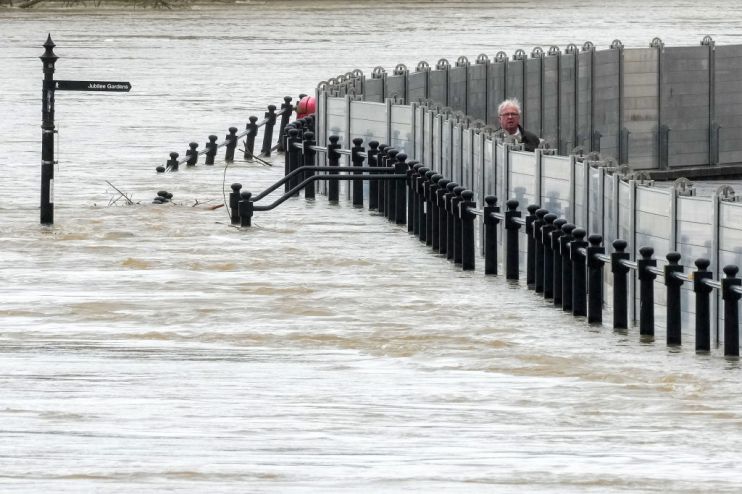UK economy ambles into period of sluggish growth

The UK economy has entered what is expected to be a protracted period of sluggish growth, official figures released today reveal.
The early signs of inflation and tax hikes dealing a heavy blow to Brits’ spending are emerging in new GDP figures published by the Office for National Statistics (ONS) today.
The economy grew just 0.1 per cent in February, lower than most experts thought and much slower than the 0.8 per cent rate of expansion notched in January.
The brakes have been slammed on the roaring recovery from the Covid-19 crisis driven by the tightest cost of living squeeze in a generation.
UK living standards are forecast to fall at the fastest rate since 1956, according to the Office for Budget Responsibility, caused by inflation averaging 7.4 per cent over the course of the year.
The tax burden is set to swell to its highest level since the 1940s. Last week, the 1.25 percentage point national insurance hike came into effect.
Households will slash spending in response to pressure on their finances, causing growth to come in much lower than first expected.
The cost of living is already running at 6.2 per cent, a 30-year high, but is expected to trend much higher due to Russia’s invasion of Ukraine sening energy prices soaring.
Chancellor Rishi Sunak said: “Russia’s invasion of Ukraine is creating additional economic uncertainty here in the UK, but it is right that we are responding robustly against Putin’s unprovoked invasion.”
February’s GDP print was weighed down by health output slumping as a result of “a fall back from high levels in NHS Test and Trace and vaccination activity in December and January,” the ONS said.
Most pandemic curbs were scrapped in February after the worst of the Omicron wave subsided, leading to fewer people testing. Most of the population received their third booster shot in December and January.
Services activity, which the UK economy is heavily reliant on to generate output, was a bright spot, growing 0.2 per cent, driven by households flocking back to pubs, bars and restaurants as fears over contracting the virus and restrictions eased.
However, this was partially offset by construction output being blown off course by the spate of storms that battered the UK during February.
“Some temporary headwinds—literally—also held the recovery back in February; storms mid-way through the month likely were responsible for the 0.1% month-to-month decline in construction output,” Samuel Tombs, chief UK economist at Pantheon Macroeconomics, said.